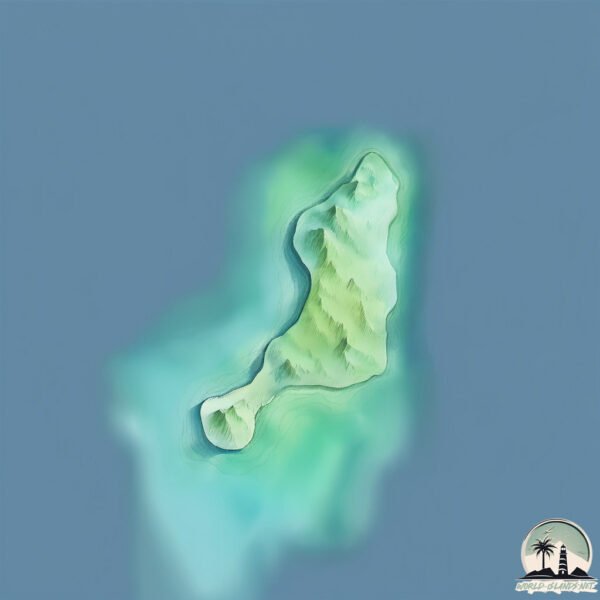Pulau Mangkian

Welcome to Pulau Mangkian, a Tropical island in the South China Sea, part of the majestic Pacific Ocean. This guide offers a comprehensive overview of what makes Pulau Mangkian unique – from its geography and climate to its population, infrastructure, and beyond. Dive into the details:
- Geography and Size: Explore the island’s size and location.
- Climate and Weather: Weather patterns and temperature.
- Topography and Nature: Uncover the natural wonders of the island.
- Infrastructure and Travelling: Insights on reaching, staying, and making the most of your visit.
- News and Headlines: Latest News.
Geography and size of Pulau Mangkian
Size: 0.19 km²
Coastline: 2.4 km
Ocean: Pacific Ocean
Sea: South China Sea
Continent: Asia
Pulau Mangkian is a Tiny Island spanning 0.19 km² with a coastline of 2.4 km.
Archipel: Malay Archipelago – The world’s largest archipelago, located between mainland Southeast Asia and Australia, known for its immense biodiversity and cultural diversity.
Tectonic Plate: Sunda – Extends across Southeast Asia, encompassing parts of the Sunda Shelf, known for its interaction with the Australian Plate, contributing to volcanic activity in Indonesia.
The geographic heart of the island is pinpointed at these coordinates:
Latitude: 3.25990292 / Longitude: 106.38924834
Climate and weather of Pulau Mangkian
Climate Zone: Tropical
Climate Details: Tropical Rainforest Climate
Temperature: Hot
Climate Characteristics: This climate is typified by heavy rainfall throughout the year, high humidity, and consistently high temperatures, leading to lush rainforests and rich biodiversity. Seasonal temperature variations are minimal.
Topography and nature of Pulau Mangkian
Timezone: UTC+07:00
Timezone places: Asia/Jakarta
Max. Elevation: 1 m
Mean Elevation: 0 m
Vegetation: Deciduous Broadleaf Forest
Tree Coverage: 60%
The mean elevation is 0 m. The highest elevation on the island reaches approximately 1 meters above sea level. The island is characterized by Plains: Flat, low-lying lands characterized by a maximum elevation of up to 200 meters. On islands, plains are typically coastal lowlands or central flat areas.
Dominating Vegetation: Deciduous Broadleaf Forest
Composed of broadleaf trees that shed their leaves seasonally. These forests are commonly found in temperate zones and experience distinct seasonal changes. Pulau Mangkian has a tree cover of 60 %.
Vegetation: 1 vegetation zones – Minimal Diversity Island
These islands exhibit the most basic level of ecological diversity, often characterized by a single dominant vegetation type. This could be due to extreme environmental conditions, limited land area, or significant human impact. They represent unique ecosystems where specific species have adapted to thrive in these singular environments.
Infrastructure and Travelling to Pulau Mangkian
Does the island have a public airport? no.
There is no public and scheduled airport on Pulau Mangkian. The nearest airport is Ranai-Natuna Airport, located 233 km away.
Does the island have a major port? no.
There are no major ports on Pulau Mangkian. The closest major port is TAREMPAH, approximately 19 km away.
The mean population of Pulau Mangkian is 33 per km². Pulau Mangkian is Gently Populated. The island belongs to Indonesia.
Continuing your journey, Pulau Batu Garam is the next notable island, situated merely km away.
PANTAI MANGKIAN PENDEK | TEMPAT LIBURAN | TERUMBU KARANG | DUOKEY FAMILY #revew #pulau #tempatwisata



Indonesia is classified as Emerging region: MIKT: Mexico, Indonesia, South Korea, and Turkey – Economies recognized for their development potential and emerging market status. The level of income is Lower middle income.
News – Latest Updates and Headlines from Pulau Mangkian
Stay informed with the most recent news and important headlines from Pulau Mangkian. Here’s a roundup of the latest developments.
Please note: The data used here has been primarily extracted from satellite readings. Deviations from exact values may occur, particularly regarding the height of elevations and population density. Land area and coastline measurements refer to average values at mean high tide.
